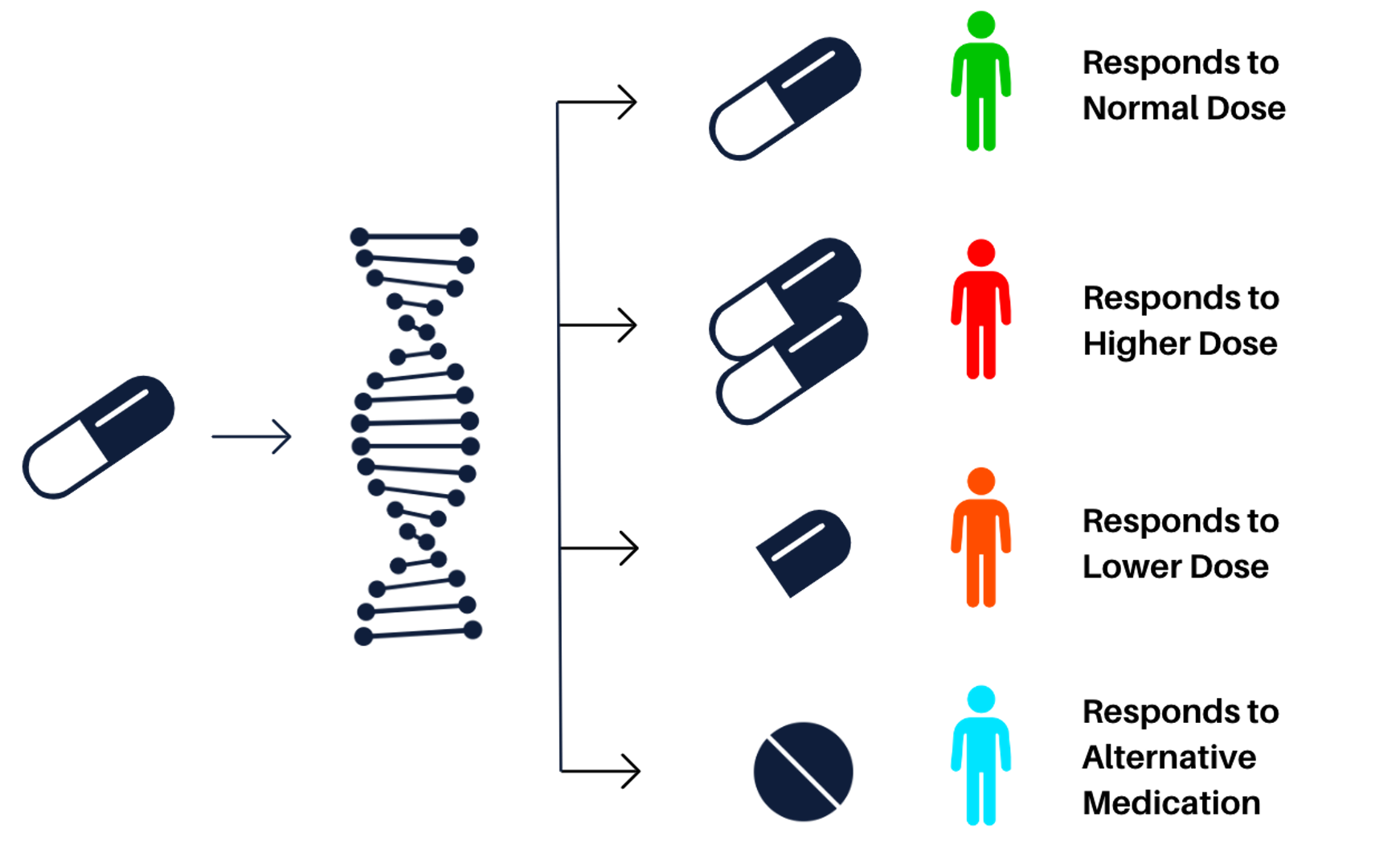Personalized Medicine through Pharmacogenomics
Pharmacogenomics (or PGx) testing studies how your unique genetic makeup affects the way you respond to different medications. It is a one-time, but comprehensive genetic test, that provides intel to ensure you are taking the right medications and dosages based on your unique DNA. Whether it is prescription meds or over the counter, a medication that will work well for one person, could cause adverse effects in another. No one person processes medications the same.
Have you ever wondered if you were taking the right medications for you?
If you answered yes to 1 or more of these questions, a PGx test may help you significantly on your path to achieving optimal health.
Nearly 30% of adults in the U.S. take 5+ medications
Drugs are involved in 80% of treatments & impact all aspects of a patient's life
Only 13% of primary care physicians consult with a pharmacist before prescribing new prescriptions
10,000 prescription medications are available on the market
Personalized Medicine
Customized drugs based on your individual genetic makeup

Precision Health Solutions pharmacogenomics test results are intended to be interpreted by a licensed healthcare provider. Please share the Patient Summary Report with all healthcare providers involved in prescribing and managing medication therapies. Though pharmacogenomics may help a physician determine appropriate medication therapy, abnormal or normal genetic results do not always indicate whether a medication will work properly. Only a physician or other licensed healthcare provider can determine appropriate medical therapy and associated risks identified in a pharmacogenetic gene test. Never modify, change, and/or discontinue any medication therapy prescribed or ordered unless directed by a licensed healthcare provider involved in the patient’s continuum of care.





